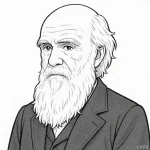“When men do not have healthy notions of the Divinity, false ideas supplant them, just as in bad times one uses counterfeit money when there is no good money.”

- November 21, 1694 – May 30, 1778
- Born in France
- Philosopher, man of letters, historian
table of contents
Quote
“When men do not have healthy notions of the Divinity, false ideas supplant them, just as in bad times one uses counterfeit money when there is no good money.”
Explanation
This quote reflects Voltaire’s critique of religious understanding and the dangers of misguided or distorted beliefs about the divine. He compares false religious ideas to counterfeit money, suggesting that when individuals lack true, healthy knowledge of God, they turn to flawed or misleading beliefs, much like people resort to fake currency when legitimate money is unavailable. Voltaire’s metaphor emphasizes the idea that without a clear, rational understanding of the divine, people may be easily swayed by incorrect or harmful ideas.
In modern contexts, this idea resonates with discussions about the dangers of superstition, misinformation, or manipulative ideologies in religion and society. When a society lacks access to truth, education, or critical thinking, it becomes vulnerable to false beliefs that can be exploited for power or control. Voltaire’s quote serves as a reminder to seek truth and clarity in our understanding of important matters, rather than allowing misconceptions or deceptive ideas to fill the void.
A specific example of this principle can be seen in the rise of extremist ideologies or cults, where individuals may turn to distorted beliefs in times of uncertainty or hardship. When the true principles of faith or reason are unclear or inaccessible, people may adopt harmful or divisive beliefs that promise simple answers to complex questions. Voltaire’s words challenge us to engage with religion, philosophy, and knowledge with critical thinking, ensuring that we do not fall prey to the counterfeit ideas that may arise in times of confusion.
Would you like to share your impressions or related stories about this quote in the comments section?




